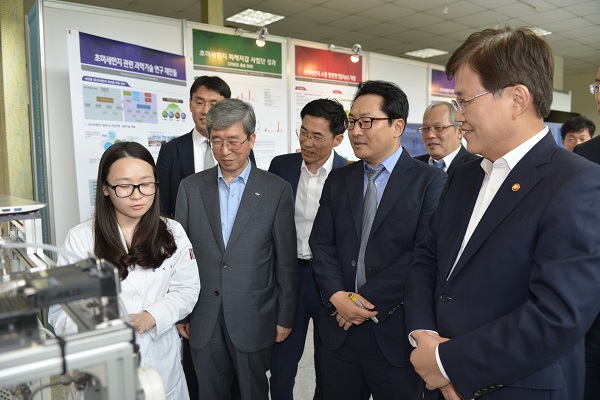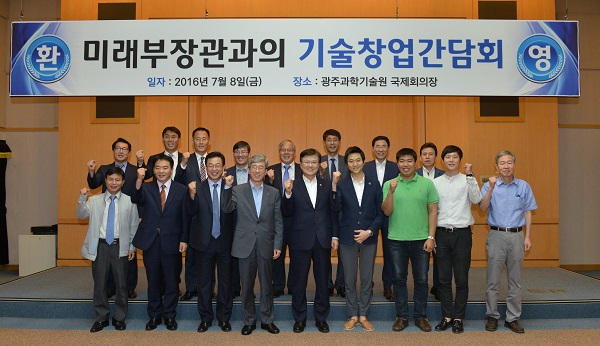Media Center
A multimedia mosaic of moments at GIST
GIST Excellence
[Press release] Using technology to find solutions to fine dust pollution
- 엘리스 리
- REG_DATE : 2016.07.11
- HIT : 1247
Using technology to find solutions to fine dust pollution

Researchers from the ultra-fine dust related research project met with Minister Yang-Hee Choi from the Ministry of Science, ICT & Future Planning to discuss plans for solving fine dust pollution by using science and technology. Ultra-fine dust related research project, which is managed by GIST, is the Korea’s only research project related to this topic.
The research team is located in Samsung Environmental Science Research building at GIST. The team demonstrated its dust-making system to mimic dust created by thermal power plants, coal burned particles, burned vegetation particles, and ocean wave particles. Then they used their own dust detecting system and measured it in real-time. They also tested ultra-fine dust filtering systems and face mask performances.
The ultra-fine dust damage reduction project is directed by Professor Kihong Park. He said, “Particulate concentration of fine dust is important, but knowing the composition of fine dust is more important in understanding its physical and chemical properties of certain dust and in finding the secondary causes of fine dust”.

Professor Kihong Park presented his research at the Technology Startup meeting. Also, the venture company SOS Lab, which is headed by GIST alumni Ji-Sung Jung, presented a laser sensor module for self-driving vehicles. Professor Min-Gon Kim, CEO of INGIBIO, also presented his cardiovascular disease and cholesterol diagnostic sensor.